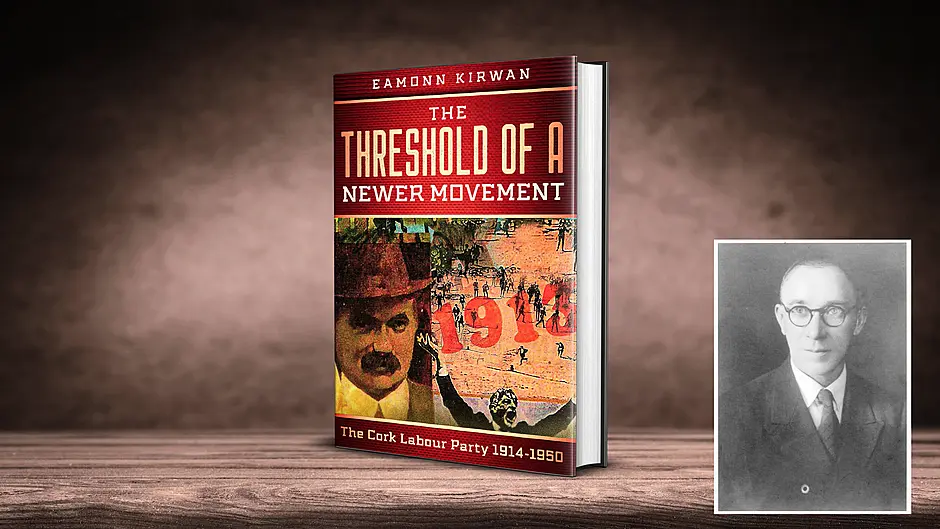One West Cork man was a crucial figure in the setting-up of the Labour Party here, and he passionately fought for better rights for workers and for tenants, writes Eamon Kirwan
WEST Cork was critical in the development of the Labour Party in the formative years with some of the first branches being formed here.
And TJ Murphy from Dunmanway was a key figure in this process. By the early 1930s, his organisational skills ensured that West Cork was seen as the model nationally for developing the party at a local level.
Skibbereen, Bantry, Dunmanway, Bandon and Clonakilty were among the first local branches formed nationally and these areas regularly elected Labour TDs and county councillors over the period.
Timothy Joseph Murphy (1893-1949), often referred to as ‘TJ’, or Tadgh, was born in Clondrohid. He grew up in an area steeped in the Land and Labour Association and the fight for land labourer’s rights.
He devoted some time in his early adult life to journalism, a skill that served him well in later years publicising the activities of the party. He became a travelling salesman for Singer sewing machines and moved to Dunmanway around 1919 where he was to create his formidable political base.
By 1922 he became branch secretary of the Dunmanway ITGWU as the Union increasingly backed agricultural workers a cause close to Murphy’s political philosophy. His involvement also extended to local politics as he played an important role in the election of fellow ITGWU activist in Dunmanway, Michael Bradley to the Dail in the 1922 general election.
Following Bradley’s death in 1922 he contested the selection convention for the 1923 election. At the Labour selection convention two Timothy Murphy’s were nominated with the Dunmanway Murphy winning out by one vote over Timothy from Clonakilty. In the new five-seat constituency of South-West Murphy won a seat quite comfortably. From then until his death he was the dominant force in that constituency, topping the poll in five elections. He took a running mate in 1943 and 1944 but failed to deliver a second seat.
He won a seat on Cork County Council in 1925 which he retained to 1948. His constituency organisation was a model for other constituencies. He expanded the role of labour clubs after the change in the 1926 party constitution and with the separation of trade union and political organisation he set out to have a labour club or branch in every parish. He was involved in the formation of virtually every Labour Club between 1926 and early 1930’s.
In the Dail he supported the Treaty, urged FF to reject their abstentionist policy and return to normal politics. He was, however, in favour of Labour being an independent party and opposed the party supporting FF in government. On policy issues he was committed to a State widows and orphans’ pension, to supporting local employment through direct labour schemes. He fought in his political life for agricultural workers and for tenant’s rights including ownership.
In 1930 at a Labour meeting he outlined his political philosophy. ‘We need a revolution; not a military one, not promote civil disobedience but a revolution on unemployment, on housing where we need a National Housing Agency to build with public money affordable housing. We need proper public funding for pensions where widows and orphans not rely on Poor Law provision. We must promote industry, agriculture and transport through public monies.’
Murphy condemned the government for handing over a public bank, The National Land Bank, to Bank of Ireland.
The pinnacle of his career was to hold a cabinet post in the first inter-party government in 1948. Allocated the Department of Local Government, he set in place systems and structures that saw a major increase in building public housing. In 1947 only 744 public houses were completed yet within two years that had increased that to 8000 and by 1951 that number had risen to 14,000.
He would clearly have made a major impact in that first coalition government but on 29th April 1949 he collapsed and died while addressing an inter-party government public meeting in Fermoy, aged just 56.
In the bye-election in June his son Billy retained the Labour seat by winning 63% of the first preference vote.
The Threshold of a Newer Movement: A Cork Labour Party in Cork (1914-1950) by Eamon Kirwan is published by Orla Kelly Publishing and is available in bookshops in Kinsale, Bandon, Clonakilty, Macroom, Bantry, Skibbereen and from the Dunmanway Historical Association (€14.99)








